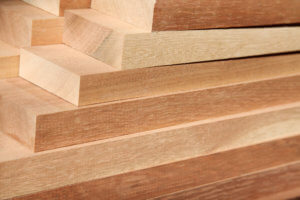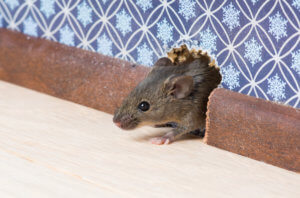When the Norway Rat originally traveled from Europe to America, it did so by boat. It is very common for boats to sit for extended periods of time (either at a dock or on land) and this makes them very susceptable to a rodent intrusion. If you have a boat, it is super important that you understand that the potential for rodent damage is a serious risk and appropriate preventative action needs to be taken.
The approach to your rodent prevention plan will be different depending on whether your boat is stored on a dock or on land. Let’s looks at each separately.
Boats Stored on a Dock
The most common way for rodents to gain access to your docked boat is via the ropes that secure your boat to the dock (i.e. the mooring line). Therefore, it makes sense to explore ways in which this entrance can be blocked off.
Rat Guards are plastic discs that fit around your mooring line. They provide a barrier that rodents cannot climb over and therefore cannot enter your boat. Alternatively, I have heard of people making their own Rat Guards with frisbees. You can also take a plastic 2 liter bottle, cut off the bottom end and thread the mooring line through the bottle with the open end facing the dock. When the rodent tries to climb up on the bottle, it will spin and the rodent will end up in the drink.
Some people say that rats can jump into your boat from the dock if it is too close, but I highly doubt that this is a common thing. Rats can jump very well for their size but it is mostly if they are in danger.
Norway Rats are also known to be good swimmers, so it could be possible (though rare) that they try to access your boat via the water. Take a look around your boat to see if there are any possible entry points from the water. One thing to look for is the swimming ladder. Be sure to retract the ladder or pull it up out of the water while the boat is docked. Also make sure there isn’t any rope or lines hanging down from your boat into the water.
If you do identify a point of entry, try and plug it up with steel wool (rats cannot chew through steel) if it is a hole, or place snap traps on the boat side of it. Let me know if you have questions about exact placement!
Boats Stored on Land
This is where your boat will be most at risk of rodent damage (if the rodent can get in). Boats stored on land have more potential entry points than a boat in the water.
The key to protecting your boat on land is to block off the entrances. If you have access to your boat daily, place snap traps at the bases and tops of the tread of the tires on the trailer (this may not be practical for a boat stored offsite). Also, take a walk around the boat to ensure there isn’t any rope or straps hanging to the ground from the boat.
If your boat is stored offsite, try and configure some solar lights to shine under the boat at night. There are solar rope lights that you can purchase and I would suggest wrapping these around the bases of the treads of the tires at night. Rodents do not like to be exposed to light so this will deter them from climbing up your tires to get to the boat.
It certainly couldn’t hurt to place dryer sheets, chunks of Irish Spring soap, or moth balls in bowls in different parts of the boat (though this as a stand alone solution for rodent prevention would not be wise).
You can also consider an ultrasonic device, which will be more effective against mice than rats. This would need to be hooked up to a power source.
A cat or owl box is never a bad idea either if these would be possible choices.
Will my boat insurance cover rodent damage?
This will only be the case (for the vast majority of insurance plans) if you have Comprehensive Coverage. Comprehensive Coverage is not as common in boats as it is in cars. Boat owners typically don’t lease their boats (CC is usually required in lease agreements and banks aren’t as adamant about requiring CC as part of the loan agreement. This is the exact reason why you need to implement a rodent prevention plan because you probably don’t have comprehensive coverage!
As always, I hope that this information was helpful.
If you have any questions/comments, please feel free to drop a note below!
Thank you!!
Rat King Dave
This page contains Amazon Affiliate links. I will receive a commission for any purchases made through these links, though at no additional cost to you.





